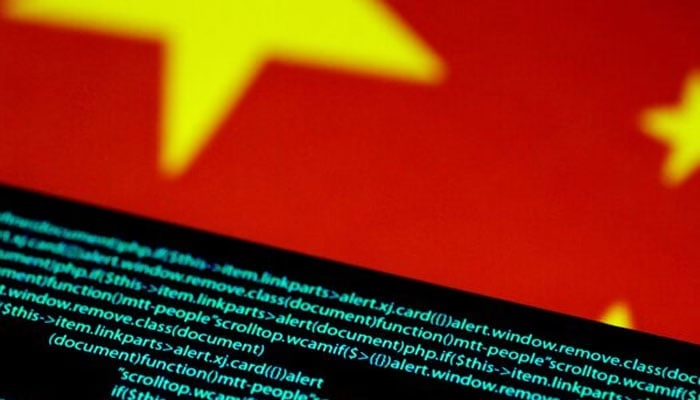China has accused the United States of launching large-scale cyberattacks on its National Time Service Center, escalating digital tensions between the two nations. According to the Ministry of State Security, these US cyberattacks on China targeted the core system responsible for maintaining time synchronization across vital national sectors such as finance, telecommunications, transportation, and defense. The alleged intrusion, attributed to the US National Security Agency (NSA), reportedly occurred between 2022 and 2024 and could have caused serious disruptions to China’s critical infrastructure.
Beijing’s statement, published on the ministry’s official WeChat account, called the evidence irrefutable and accused Washington of pursuing cyber hegemony.The ministry claimed that the cyberattacks could have compromised sensitive data and systems essential to the nation’s digital stability. This marks one of the most severe accusations of state-sponsored hacking between the two superpowers in recent years.
How the US Cyberattacks on China Were Exposed
Investigations revealed that the US cyberattacks on China were carried out by exploiting vulnerabilities in the messaging service of an unnamed foreign mobile phone brand. Hackers allegedly stole login credentials from employees working at the National Time Service Center, allowing unauthorized access to the system that manages nationwide time coordination. This system is critical for the proper functioning of internet servers, power grids, railway networks, and satellite systems.
According to the ministry, such attacks had the potential to disrupt not only daily operations but also key national projects such as space launches and energy distribution. Once detected, Chinese cybersecurity teams immediately dismantled the attack chains, upgraded defense systems, and strengthened digital firewalls to prevent future breaches. The incident underscored the need for stronger data protection and advanced cyber defense capabilities within China’s national infrastructure.
China’s Response to the US Cyberattacks
In a strongly worded statement, the Ministry of State Security condemned the US cyberattacks on China, accusing Washington of violating international cyber norms and threatening global digital security. The ministry declared that the United States has long sought to dominate cyberspace and destabilize other countries for strategic gain. In recent years, the United States has aggressively pursued cyber dominance, trampling on international cyberspace rules,the ministry said.
Beijing urged citizens, cybersecurity professionals, and tech firms to remain alert to potential foreign intrusions and to report suspicious activity. This call to action reflects China’s increasing focus on national cybersecurity and digital sovereignty as foreign threats become more sophisticated and frequent.
A Growing Pattern of Cyber Rivalry
The accusations of US cyberattacks on China are part of an ongoing pattern of mutual distrust in the cyber domain. Western nations have frequently accused Beijing of sponsoring global hacking operations targeting political organizations, media institutions, and private corporations. In 2023, the US government claimed that a China-backed group was responsible for hacking the US Treasury Department’s networks. China dismissed these claims as politically motivated and “groundless.”
Now, with Beijing’s latest accusations against Washington, the cyber conflict has intensified. Both nations deny each other’s claims while simultaneously investing heavily in cybersecurity technologies and intelligence-gathering systems. Analysts suggest that this digital rivalry mirrors the geopolitical competition between the two nations, extending their power struggle into the virtual realm.
Global Implications of the US Cyberattacks on China
Experts warn that the alleged US cyberattacks on China could have far-reaching consequences for global cybersecurity and economic stability. Attacks on time synchronization systems are particularly dangerous because they underpin digital communication, banking transactions, power grids, and transport logistics. A successful disruption could cause widespread chaos, halting economic activities and potentially endangering public safety.
Modern warfare has evolved beyond physical battlegrounds — today’s conflicts often unfold silently in cyberspace. The incident serves as a reminder that cyberwarfare can cripple a nation’s infrastructure just as effectively as traditional military operations. According to the International Telecommunication Union (ITU), global spending on cybersecurity is expected to exceed $300 billion by 2026, a sign that governments are increasingly prioritizing defense against digital threats.
China Labels the United States as a Hacker Empire
In its latest remarks, the Chinese Ministry of State Security stated that “ironclad evidence proves that the United States is the true hacker empire.” The ministry accused Washington of being the world’s biggest source of instability in cyberspace and called for international cooperation to establish fair and transparent cyber governance rules.
By framing the US cyberattacks on China as part of a broader campaign of digital aggression, Beijing aims to strengthen its position as a proponent of global cybersecurity reform. China advocates for digital sovereignty — the idea that nations have the right to control their own internet infrastructure without foreign interference.
The Future of the US-China Cyber Conflict
The continuing allegations of US cyberattacks on China highlight how the two superpowers are locked in an ongoing digital standoff that shows no sign of easing. Both countries are advancing their offensive and defensive cyber capabilities, and each accuses the other of espionage and sabotage.
Whether China’s claims are independently verified or not, they underscore the increasing risks of cyber conflict in a world dependent on interconnected digital systems. The challenge now lies in preventing these cyber confrontations from escalating into broader geopolitical crises.
The future of international relations may depend on how the US and China manage their growing digital rivalry. Without mutual trust and clearly defined cyber norms, the US-China cyber conflict could deepen, shaping the next chapter of global security and influencing how nations navigate the complex intersection of technology, politics, and power.



